Recent research has shown that one promising approach to support the development of successful firms and a more productive workforce is to incorporate psychological and social attitudes and abilities into labor markets and workforce development programs. Soft skills play a role in shaping people's preferences and aspirations, their ability to access resources, and their behaviors as they seek jobs, improve their work performance, and start and grow businesses. In recognition of the promising evidence of its effectiveness, IPA recognized soft skills training to boost business profits and sales as an emerging opportunity for impact at scale in its Best Bets report.
However, key gaps remain in understanding which soft skills matter for whom, how best to implement soft skills programs effectively and at scale, and the causal mechanisms through which these skills affect economic outcomes. Developing effective programming will depend on the ability of research to use common frameworks, develop comparable findings, and build on existing research.
Click on the following links to jump to the relevant section on this page: Research Fund | IPA Studies | IPA Soft Skills Resources | Frameworks & Measures |
Research Fund
IPA Announces New Research Funding Opportunity in Collaboration with J-PAL
Read More
IPA Resources
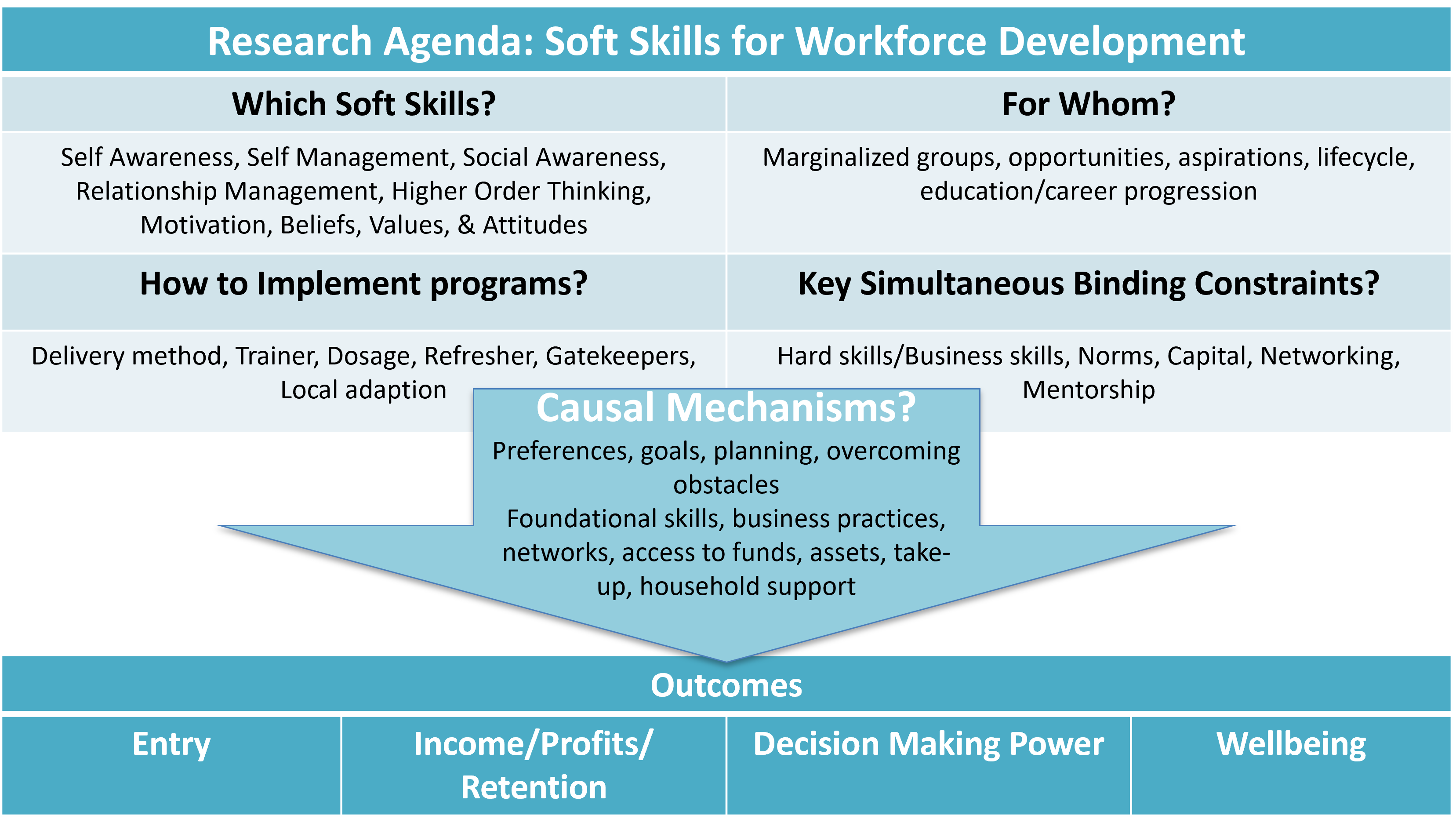 | J-PAL and IPA Joint Research Agenda: Soft Skills for Entrepreneurship and Workforce DevelopmentIPA and J-PAL have partnered to lay out the forefront of research examining soft skills. Key research gaps remain in understanding which soft skills matter for whom, how best to implement soft skills programs effectively and at scale, and the causal mechanisms through which these skills affect economic outcomes. For more information on our research priorities, the definition of soft skills, outcomes of interest, and sample research questions, read our research agenda. |
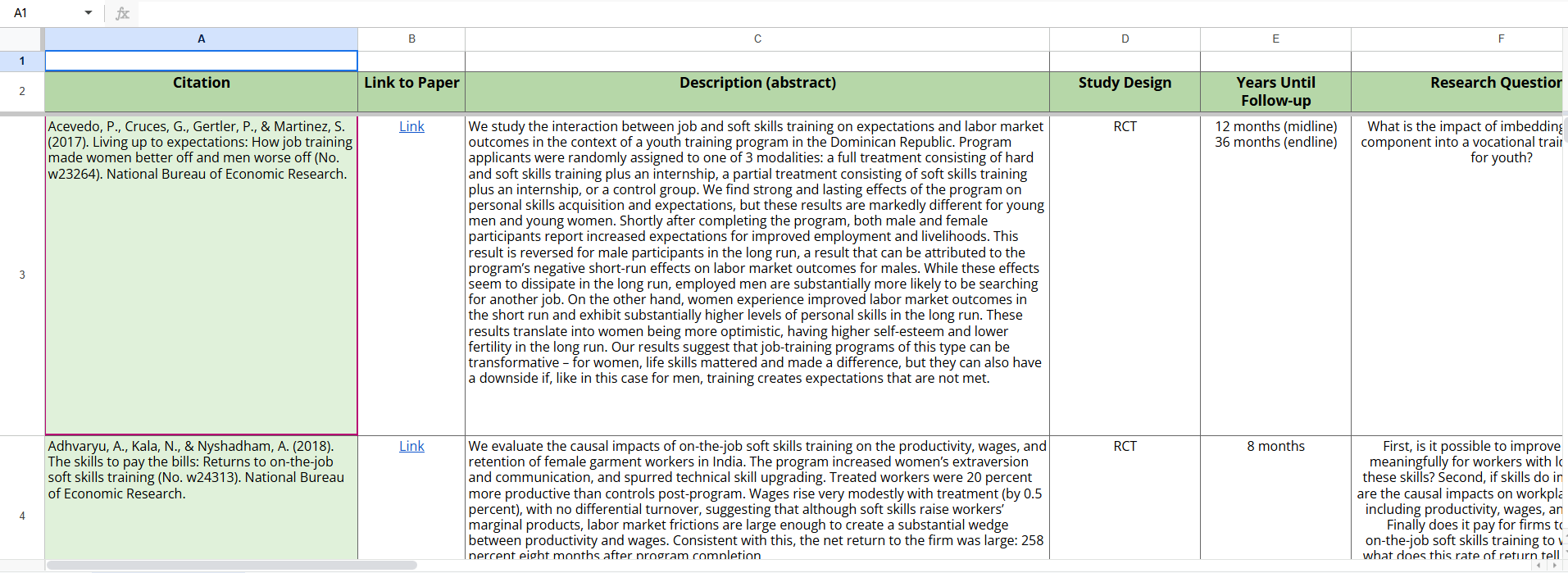 | Living Evidence Review: Soft Skills and Labor Market OutcomesThis living record of evidence is a dynamic repository for experimental research that examines how soft skills impact labor market and economic outcomes. See our living evidence review here. Users are welcome to download this Google Sheet as an Excel file and apply your own filters to engage with the evidence as it supports your work. We invite recommendations of evidence to incorporate. |
 | Effective Socio-emotional Skills to Gain Economic Empowerment (ESTEEM)Socio-emotional skills (SES) have gained attention as a promising way to improve economic empowerment in low-income countries. IPA and the World Bank’s Africa Gender Innovation Lab (GIL) are collaborating on ESTEEM, or Effective Socio-emotional Skills to Gain Economic Empowerment. Learn more here. |
 | What Are We Learning about Effective Implementation at Scale? Soft Skills Training for Entrepreneurship and Workforce DevelopmentSoft skills training—specifically Personal Initiative (PI) Training—has shown promising effects on business outcomes for entrepreneurs. Yet, results vary by context and gender, and implementation could significantly shape effectiveness, so a better understanding of the mechanisms behind the intervention could help implementers deploy it more successfully. What do we know about implementing soft skills training, so far? |
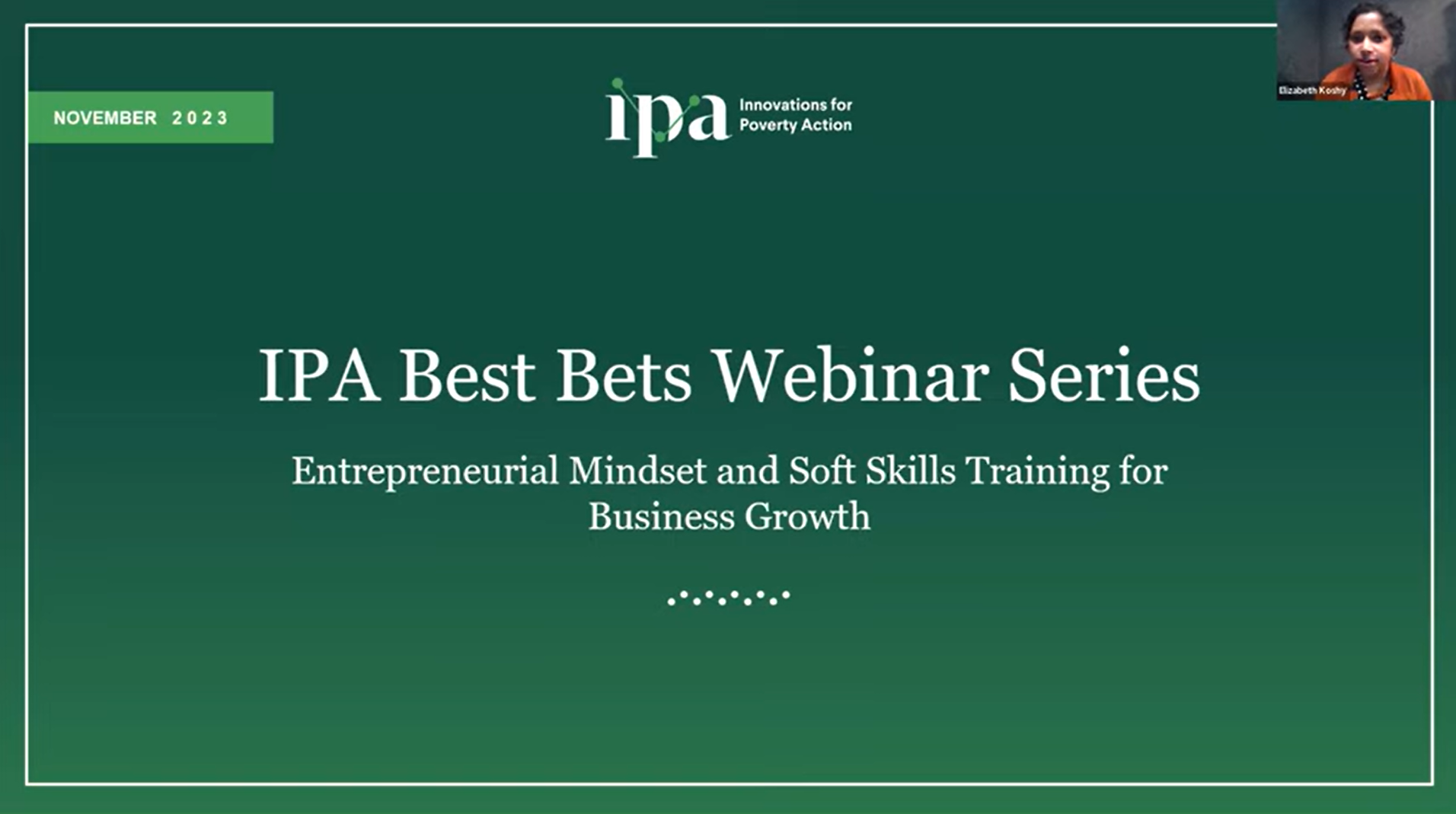 | Best Bets Webinar Series: Entrepreneurial Mindset and Soft Skills Training for Business GrowthIn November 2023, as part of IPA's Best Bets launch, IPA hosted a Best Bets Webinar focused on Entrepreneurial Mindset and Soft Skills Training Programs. Watch the webinar recording here. |
Frameworks & Measures
 | Effective Socio-emotional Skills to Gain Economic Empowerment (ESTEEM) Framework and ToolsIPA and the World Bank’s Africa Gender Innovation Lab (GIL) are collaborating to unpack the black box of SES and examine whether some skills matter more for women and men’s economic empowerment, develop free SES measurement tools, and explore the relationship between SES and norms. This includes the ESTEEM framework and a roadmap for measuring soft skills and SEL, among other resources. |
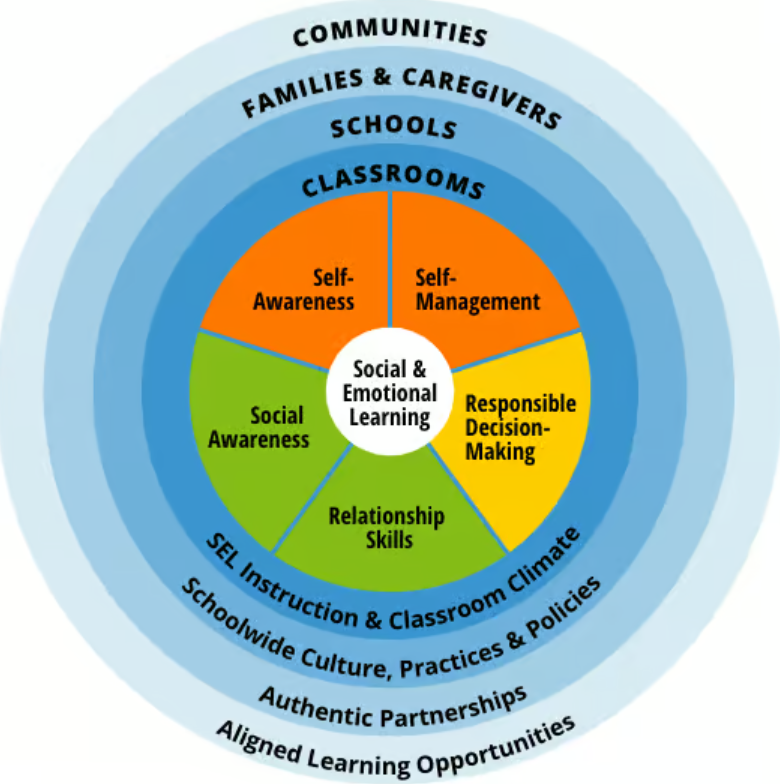 | Collaborative for Academic, Social, and Emotional Learning (CASEL) FrameworkThe Collaborative for Academic, Social, and Emotional Learning (CASEL) identifies five core competencies of social and emotional learning (SEL). These competencies are self-awareness, self-management, social awareness, relationship skills, and responsible decision-making. |
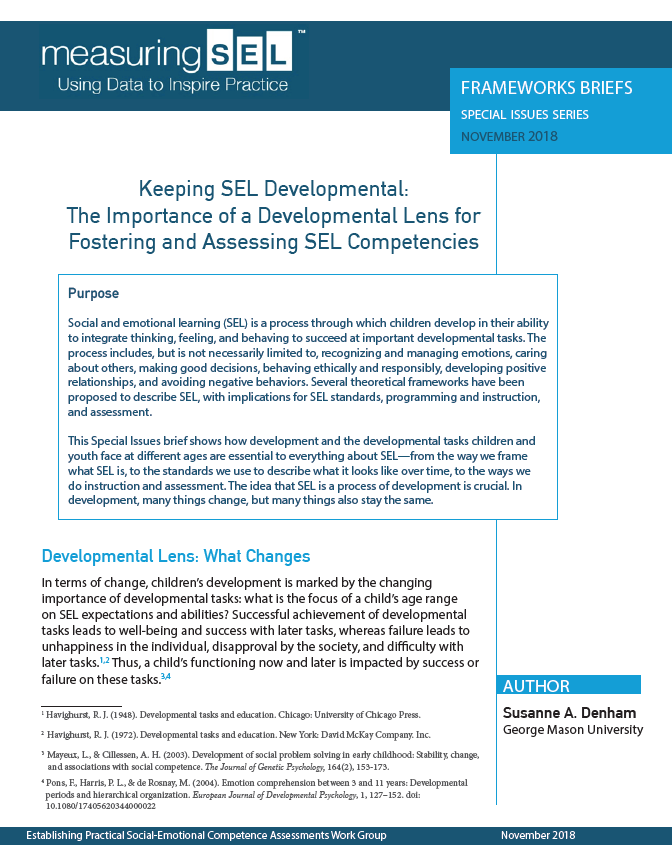 | CASEL Assessment ToolsAs the field of social and emotional learning has evolved, a variety of helpful and important ways to assess students’ social-emotional competence have emerged, including strategies for how teachers can monitor their students’ progress on social and emotional development in the classroom, and how schools can assess quality of implementation. CASEL does not yet recommend SEL measures for accountability purposes; however, states can provide support to measure the quality of implementation. The resources on their webpage can help. |
 | EASEL Lab Visual Tools to Explore SELThe EASEL Lab at Harvard Graduate School of Education provides visual tools to explore similarities and differences between frameworks for exploring SEL. |
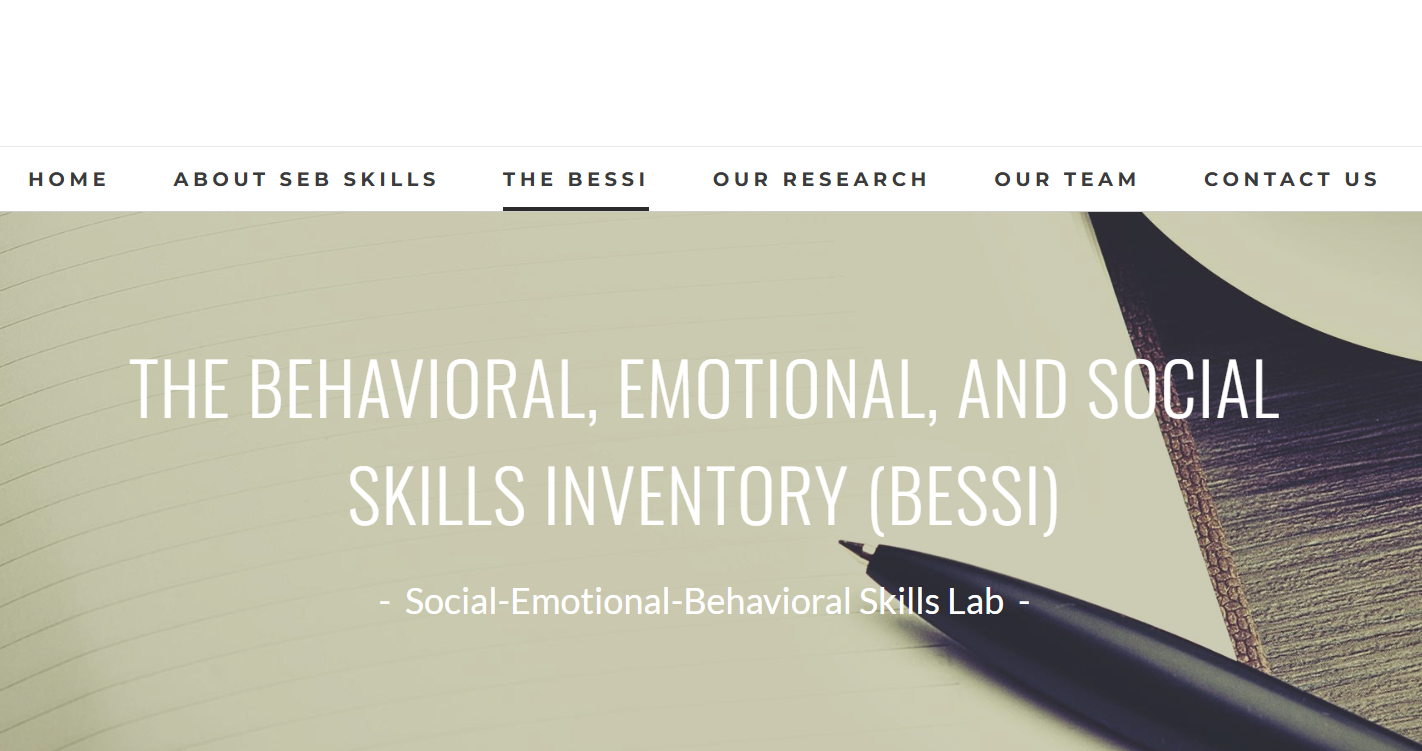 | The Behavioral, Emotional, and Social Skills Inventory (BESSI)The Behavioral, Emotional, and Social Skills Inventory (BESSI) is a comprehensive, reliable, valid, and efficient measure of social, emotional, and behavioral skills (SEB skills). It measures five major skill domains, which quickly summarize someone’s skills: Self-Management Skills, Social Engagement Skills, Cooperation Skills, Emotional Resilience Skills, and Innovation Skills. |
 | Measures for Advancing Gender Equality (MAGNET)The Measures for Advancing Gender Equality (MAGNET) initiative aims to (i) broaden and deepen the measurement of women’s agency, based on the development of new tools and rigorous testing and comparison of both new and existing methods for measuring agency, and (ii) promote the adoption of these measures at scale. |
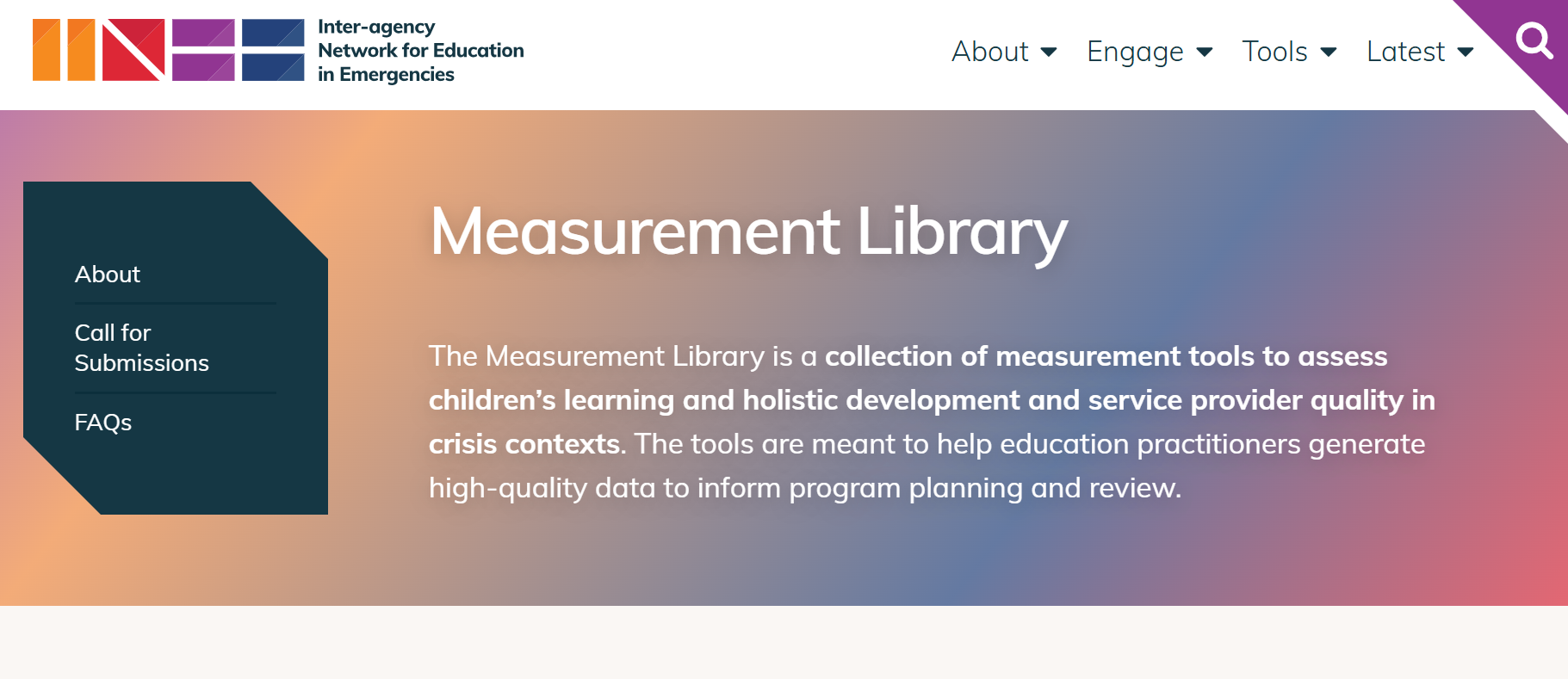 | The Inter-agency Network for Education in Emergencies (INEE) Measurement LibraryINEE's Measurement Library is a collection of measurement tools to assess children’s learning and holistic development and service provider quality in crisis contexts. The tools are meant to help education practitioners generate high-quality data to inform program planning and review. |















